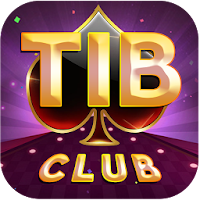Nintendo has long been known for its aggressive stance against emulation and piracy, a reputation further solidified by recent legal actions. In March 2024, the developers of the Nintendo Switch emulator Yuzu were hit with a hefty $2.4 million fine following a court settlement with Nintendo. Just months later, in October 2024, the Ryujinx emulator team announced the cessation of their project after receiving communication from Nintendo. The year prior, in 2023, the Dolphin emulator for Gamecube and Wii faced hurdles when Valve, influenced by Nintendo's legal team, advised against a full Steam release.
The case of Gary Bowser in 2023 further underscores Nintendo's vigilance. Bowser, involved with Team Xecuter's piracy circumvention products for the Nintendo Switch, was charged with fraud and ordered to repay Nintendo $14.5 million—a debt he will carry for life.
At the Tokyo eSports Festa 2025, as reported by Denfaminicogamer (via VGC), Nintendo's approach to piracy and emulation was dissected by Koji Nishiura, a patent attorney and Assistant Manager of Nintendo's Intellectual Property Division. According to a translation by Automaton, Nishiura clarified the legal gray areas surrounding emulators. He stated that while emulators themselves aren't inherently illegal, their use can cross legal boundaries. Specifically, if an emulator copies a game's program or disables a console's security mechanisms, it may infringe on copyrights.
Nishiura pointed to Japan's Unfair Competition Prevention Act (UCPA), which complicates Nintendo's ability to enforce these laws internationally. The R4 card for the Nintendo DS, which facilitated the use of pirated games, was cited as an example. After a collective outcry from Nintendo and 50 other software companies, the R4 was effectively outlawed in Japan in 2009 under the UCPA.
Moreover, Nishiura highlighted the issue of "reach apps," tools that enable the download of pirated software within emulators or other software. Examples include the 3DS's Freeshop and the Switch's Tinfoil, both of which could violate copyright laws.
In the Yuzu lawsuit, Nintendo highlighted the severe impact of piracy, claiming that The Legend of Zelda: Tears of the Kingdom was pirated over a million times. The lawsuit also pointed out that Yuzu's Patreon page was generating $30,000 monthly by offering subscribers "daily updates," "early access," and "special unreleased features" for games like Tears of the Kingdom.
Nintendo's ongoing battle against emulation and piracy underscores its commitment to protecting its intellectual property, a stance that continues to shape the legal landscape surrounding video game emulation.






